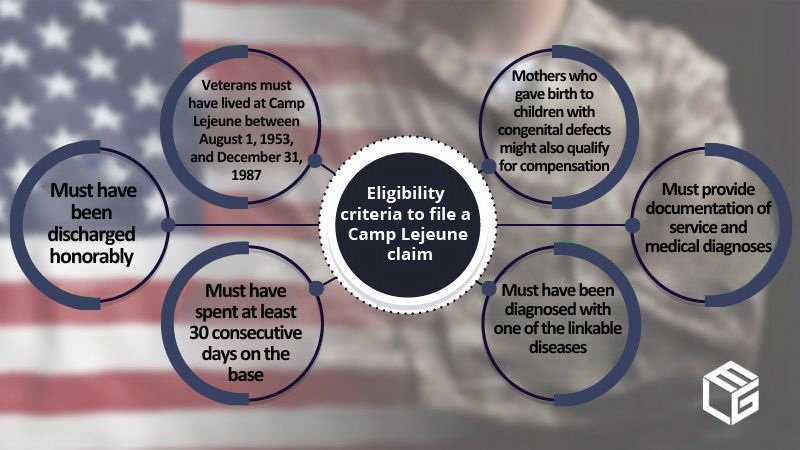Attention: We are no longer taking Camp Lejeune cases!
Benzene exposure might contribute to the development of esophageal cancer in veterans
Esophageal irritation is the main risk factor for cancer, and it can occur as a result of smoking, GERD, but also exposure to toxic chemicals on military bases such as Camp Lejeune Over 21,500 people develop esophageal cancer nationwide annually, most of whom are men. The lifetime risk of esophageal cancer is 1 in 125 in men and 1 in 417 in women. Warning signs of esophageal cancer are:
- persistent chest pain
- difficulty swallowing
- a lingering cough
- hoarseness
- unexplained weight loss
- frequent vomiting
Esophageal cancer has a grim prognosis, with a survival rate of only 20%. For this reason, if you experience any of the above symptoms, it is crucial to seek medical attention as soon as possible. Still, when esophageal cancer is found in the early phases, the survival rate can rise up to 47%. While it is still low compared to the survival rate of other cancers, timely diagnosis is essential, as treatment will be more effective, and the patient will have a significantly greater life quality.
Another recent study from the International Journal of Environmental Research and Public Health examined 36 patients with esophageal cancer. Most of the participants were men and smokers, but they had also been exposed to asbestos and solvents in occupational settings. Over 30% of the patients had a history of asbestos exposure, which is another known factor for esophageal cancer. Asbestos was also present at Camp Lejeune in various areas of the military base. The second most frequent type of exposure was to hydrocarbons and their derivatives.
Harmful agents that may contribute to the development of esophageal cancer
Furthermore, seven patients had regularly come into contact with benzene by handling fuel with occupational work tasks; four patients reported using chlorinated solvents during cleaning and degreasing operations, with one using these chemicals in the textile industry.
In addition to the lifestyle risk factors the participants had, exposure to these harmful agents might have contributed to their esophageal cancer. Therefore, the researchers found these toxins, which were present in the drinking water at Camp Lejeune, to increase esophageal cancer risk:
- benzene
- trichloroethylene
- perchloroethylene

